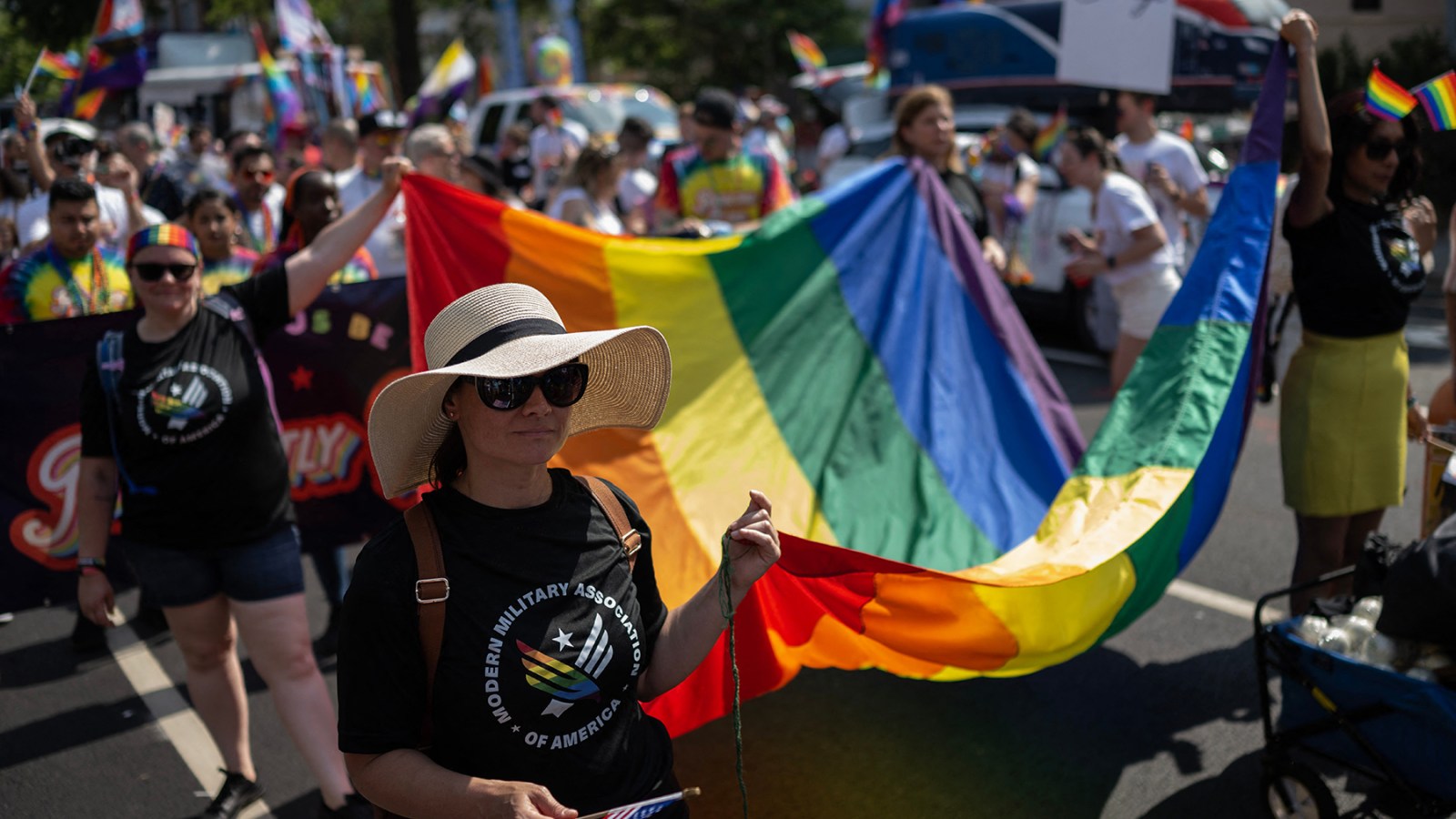LGBTQ Vets and Pentagon Reach Historic Settlement Over ‘Don’t Ask, Don’t Tell’ Discharges
A legal settlement with the Pentagon could make benefits available to tens of thousands of gay and lesbian military veterans dismissed from service because of their sexual orientation.
The military’s longstanding “Don’t Ask, Don’t Tell” (DADT) policy, which was repealed in 2010, prohibited LGBTQ service members from disclosing their sexual orientation, and prevented the military from asking them about their sexuality. If a service member’s sexual orientation became known, they would be discharged, sometimes dishonorably.
A 2024 class action lawsuit against the Department of Defense challenged decisions to dishonorably discharge LGBTQ members of the military, therefore denying them access to certain veterans benefits. But with a new proposed settlement to that suit, first reported by CBS News, the path to obtaining an honorable discharge and access those benefits could be made easier for 35,000 veterans included in the suit.
Plaintiffs released a statement Monday stating they “have reached a historic settlement agreement” with the DOD, although the settlement has not yet been affirmed by a federal court. Per the settlement, veterans whose discharge paperwork mentions their sexual orientation as a reason for their leaving the military can obtain new paperwork that does not mention their sexual orientation. Those who received a dishonorable discharge will be able to request an immediate review.
In the lawsuit, plaintiffs argued that the military discriminated against them and denied their constitutional rights. Many were unable to access benefits offered by the Department of Veterans Affairs such as tuition assistance, health care access, VA loans, and certain jobs.
“When I was discharged because of my sexual orientation, I felt that my country was telling me that my service was not valuable – that I was ‘less than’ because of who I loved,” Sherrill Farrell, a U.S. Navy veteran and plaintiff told CBS News. “Today, I am once again proud to have served my country by standing up for veterans like myself, and ensuring our honor is recognized.”
Since the repeal of DADT, the federal government has aimed to repair injustices caused by the policy. In October, the DOD announced it completed a “proactive review of service members administratively separated from the services for their sexual orientation during the Don’t Ask, Don’t Tell era.” After DADT was repealed, many veterans discharged under the policy applied for relief, and 85 percent of applicants received some form of it, according to the DOD. In June, President Joe Biden pardoned thousands of veterans who between 1950 and 2013 were convicted of violating the military’s ban on same-sex relationships. But thousands of LGBTQ veterans still lacked access to those benefits or did not have honorable discharges.
Approximately 100,000 members of the U.S. military were kicked out of the services due to DADT and other anti-LGBTQ policies from World War II through 2011.
